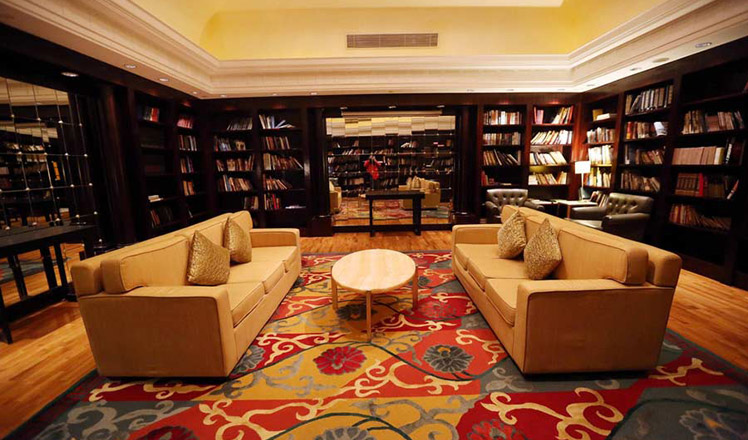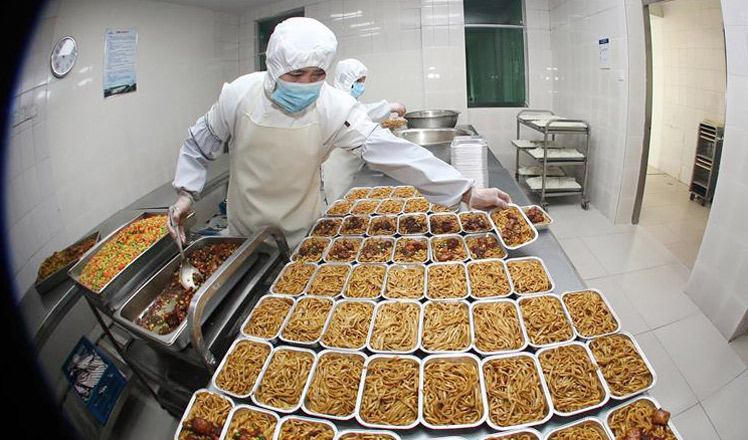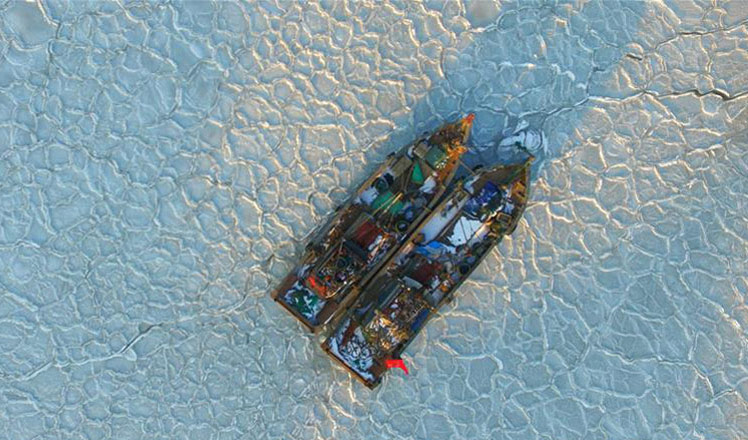Six ocean guardians' global odyssey
Updated: 2016-01-28 15:14
By Song Jingyi(chinadaily.com.cn)
|
||||||||
Editor's note: It is estimated that there will be 1kg of plastic for every 3kg of fish in the oceans by 2025 according to one piece with Daily News. Race for Water Odyssey, a global adventure tour launched by Race for Water Foundation, works to bring together the public on this issue by visiting the locations of each garbage patch around the world. China Daily Website spoke to Lucie Gerber, the R4WO's public relations officer who has followed up the whole journey , to know their ocean life around China and the world during the six voyagers' global expedition.
Plastic is everywhere, urgent solution needed
Q: How did Race for Water Odyssey originate?
A: It was a project that we have thought about for a long time. The mission of our foundation is to preserve water. What is the biggest threat right now to the oceans? It's plastic pollution. There are really pressing numbers about millions of tons of plastic floating in the oceans. We thought it was time to try to do something about it. But before doing something about it, we needed to know what was going on. What is happening is that some people imagine that pollution is like continents and that you can actually work on it, which is not the case. It is like a big trash soup, really difficult to map. We know that there are places that these trash vortexes are, but nobody really knows exactly where and how much trash is there. The idea is to go to the five gyres and see what is going on.
Q: What kind of work do you do when you arrive in a city?
A: Our mission has two kinds of stops, the scientific stops where we do analysis, and stops to raise awareness. On these stops, we try to speak about this problem and gather public opinion.
Q: Can you tell us about your Shanghai voyage?
A: It was a nice week in Shanghai, with the help of the Swiss Consulate and Swissnex, many local NGOs and environmental experts participated in our scientific workshop about marine pollution.
Q: What have you learned so far about China's marine environment?
A: Actually, we didn't sample any Chinese shorelines or beaches, our observations of China' s marine environment is restricted to our stay in Shanghai for a small week, the navigation along Chinese coast and our discussion with Shanghai local NGOs. Therefore we do not have specific data about China's ocean circulation, except the fact that during the navigation between Tokyo and Shanghai, the frequency of observed drifting sea debris from the boat was about 1 minute, which is much lower than other countries. In other terms, China coastal concentration seems to be higher. This means China's ocean situation is of serious concern. A new study, Plastic waste inputs from land into the ocean, published in the journal Science in February 2015, estimated that plastic debris washing into the ocean from 192 coastal countries reached somewhere between 4.8 and 12.7 million metric tons in 2010, among them, China is the biggest contributor.
Q: Since ocean trash is an urgent problem that China faces, what can we do to mitigate the issue?
A: As we observed, China already has a lot of people working in the field of waste valorization, up-cycling and recycling, but in contrast to other countries, a lot of workers are part of the informal sector. In my opinion, they need to be structured and regulated by the Chinese government. There are also some technological solutions now available, which could turn plastic waste into energy resources (oil or electricity). We need to scale up these solutions.
Deafening empire
Q: What kind of preparations did you make before expedition?
A: We calculated that the whole navigation would last nine months to go into all five main trash gyres. We used our ambassador boat, the MOD70 sailing trimaran, which was used for racing and not for such expeditions. The distance we needed to sail was the equivalent of two world tours (more than 40,000 nautical miles). Therefore, we needed to configure it in order to ship the scientific materials as well as the necessary things to live on board.
Q: During the voyage, what was your biggest obstacle?
A: The noise! We are immersed in a "deafening empire". When we gain speed, every single centimeter of the trimaran is noisy and the worst part is that we get used to it. Our crew's ears have never gotten respite since aboard the MOD70 Race for Water.
Each zone has specific noises: whistling or squealing noises in the hold, sprays smashing into the porthole in the kitchen and the permanent growl of the water in the whole central hull. Whether it is lowered or raised, the drift is also always very loud.
Actually, the calmer place in this "deafening empire" is our little hut on the deck, unless we get attacked by an enormous wave or by kamikaze flying fishes.
- A glimpse of Spring Rush: little migrant birds on the way home
- Policy puts focus on genuine artistic students
- Police unravel market where babies are bought, sold as commodities
- More older pregnant women expected
- Netizen backlash 'ugly' Spring Festival Gala mascot
- China builds Mongolian language corpus
- Goodwill sets tone at Wang, Kerry's briefing
- Obama picks new Afghan commander
- Ceremony held in Auschwitz Camp to remember the Holocaust
- Thousands of beckoning cat on display in Japan's Goutoku Temple
- Chinese fishing boat capsizes off S. Korean island: Yonhap
- 42 cases of Zika infection reported in N.E. Panama

 Top 10 best selling cars on Chinese mainland 2015
Top 10 best selling cars on Chinese mainland 2015
 Warm memories in the cold winter
Warm memories in the cold winter
 The world's highest library
The world's highest library
 In-flight meal prepared for travel rush ahead of Spring Festival
In-flight meal prepared for travel rush ahead of Spring Festival
 72-year-old teaches yoga for free in Hangzhou
72-year-old teaches yoga for free in Hangzhou
 Sea ice traps boats as cold wave sweeps across East China
Sea ice traps boats as cold wave sweeps across East China
 10 tourists grab free money in one minute in East China
10 tourists grab free money in one minute in East China
 Warm colors at sunrise cast off the chill in Qingdao
Warm colors at sunrise cast off the chill in Qingdao
Most Viewed
Editor's Picks

|

|

|

|

|

|
Today's Top News
National Art Museum showing 400 puppets in new exhibition
Finest Chinese porcelains expected to fetch over $28 million
Monkey portraits by Chinese ink painting masters
Beijing's movie fans in for new experience
Obama to deliver final State of the Union speech
Shooting rampage at US social services agency leaves 14 dead
Chinese bargain hunters are changing the retail game
Chinese president arrives in Turkey for G20 summit
US Weekly

|

|








